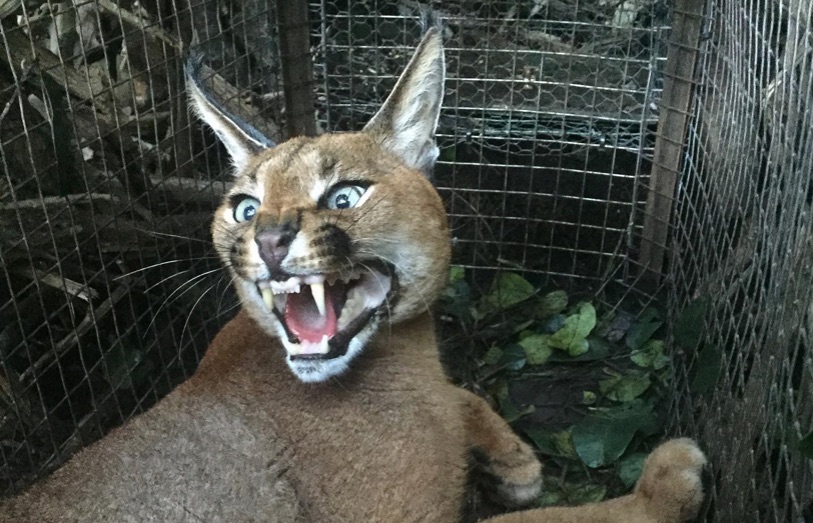The Urban Caracal Project was saddened to announce the death of Orion, one of the first caracals the organisation collared. Collars are used to monitor movements and foraging behaviours. Orion was first captured in August 2016 near Cape Point and weighed 12.2kg.
He died in the same month in which he was tagged, and is the first cat to form part of their “Meet the Cats” feature, which allows the organisation to introduce the cats to the all those who support their work. Orion’s cause of death has been attributed to pesticides and disease.
“Our testing shows he was exposed to anticoagulant rat poisons, as well as DDT and PCBs, and evidence of blood parasites, while tests for other common feline diseases are still pending,” the organisation said. “Rat poisons frequently accumulate through the food web and become concentrated in predators, like caracal, that feed repeatedly on poisoned ‘target’ animals. When the rodents we target eat anticoagulant rat poisons, they can take up to 10 days to die, can become disoriented, and can easily be eaten by a predator in that time.
“Even so-called “safe” or “owl-friendly” poisons (such as Racumin and Rattax) act in this way. Because predators, such as caracals, are often chronically exposed to these anticoagulant rat poisons, they too may eventually die directly of exposure, or indirectly if they become more vulnerable to other stressors such as disease. Our testing has shown that 94% of caracals are exposed to rat poisons in Cape Town, and so this issue is extremely common.”
The organisation thus encourages Capetonians not to use poison in their homes or businesses.
“First, reduce the amount of food and shelter for rodents by reducing waste, not feeding wildlife and sealing holes. Then look for poison-free alternatives, such as owl boxes or snap traps,” it advised.
Picture: Urban Caracal Project/Facebook

